Targeted menthol cigarette ads helped lead to high Black usage. Should they be banned?
After decades of Big Tobacco advertisements splattered across billboards, tucked inside buses and hung outside corner stores in Black and Latino neighborhoods, Henry McNeil "Mandrake" Brown had seen enough.
Using the alias "Mandrake," Brown started painting over cigarette and alcohol advertisements in his Chicago community in the 1980s and 1990s, according to historians and media archives. He called the advertisements a multipronged practice "to sustain and expand sales to minorities, to women and the poor."
At the same time, a handful of Black leaders and doctors were fighting against an overabundance of these advertisements in African American communities compared with whiter areas. The Rev. Calvin Butts, the pastor of Abyssinian Baptist Church in Harlem, painted over billboards in New York.
Uptown cigarettes, a mentholated brand geared directly to Black consumers – would’ve been tested in Philadelphia, but grassroots opposition and resistance from then-Health and Human Services Secretary Dr. Louis Sullivan led R.J. Reynolds Tobacco Company to cancel those plans in 1990.
After the release of director Spike Lee's "Malcolm X," a tobacco company created Menthol X, which was booted in 1995 after a significant outcry. Its box featured a large X like the film's poster and the Pan-African flag colors – black, red, and green, according to newspaper archives.
These earlier forms of resistance are, in many ways, fundamental to the Food and Drug Administration's move to ban the sale of menthol cigarettes. The public was able to submit comments on the proposed change through Aug. 2.
Over the course of decades, marketing menthol cigarettes to Black people fostered an environment where today, most Black smokers use the product.
“The net result of these predatory marketing strategies is the Black community is suffering unfairly and disproportionately from tobacco-related disease,” according to a statement from the Congressional Black Caucus Health Braintrust, a health care advisory task force for the caucus.
Dr. Alan Blum, director of the University of Alabama Center for the Study of Tobacco and Society, said when it comes to Black people smoking menthols, "advertising works."
"If in Ebony and Jet and billboards and convenience stores the only brands you see advertised are menthol brands, there's no mystery," he said.
The proposed ban has caused a divide within the Black community. Anti-smoking advocates and many in the medical community who support the ban have pointed out that smoking contributes to cancer, and African Americans are more likely to develop and die of lung cancer.
On the other side, some Black clergy, law enforcement groups, and publications – many of whom have received money or advertisement revenue from the tobacco industry – say Black people have the choice to use mentholated products, and that banning them could lead to negative interactions with police.
Black community divided over proposed menthol ban
Tobacco companies began targeting Black consumers in the mid-1960s, chasing after a new urban market created by the Great Migration. They avoided scrutiny in part through lavish donations to Black civic organizations.
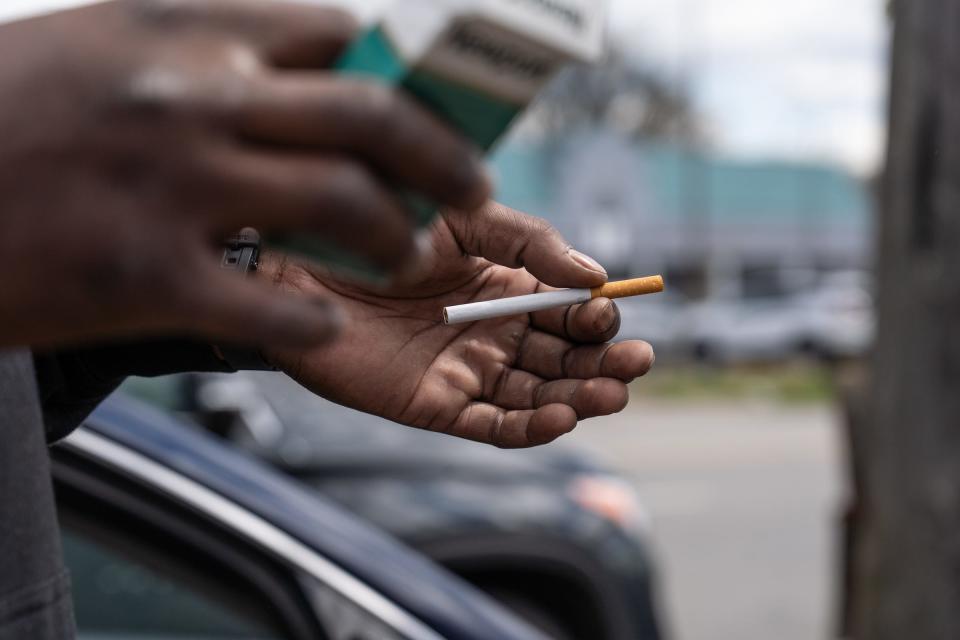
RELATED: Proposed menthol cigarettes ban will have big impact in Detroit
RELATED: FDA announces plan to ban menthol cigarettes, 'forever' targeted at Black Americans
In 2019, there were more than 18.5 million menthol cigarette smokers, according to the FDA.
Between 1980 and 2018, menthol cigarettes were responsible for 157,000 premature deaths and 1.5 million life-years lost among Black people, according to a study from the University of Michigan.
Keith Wailoo, a history and public affairs professor at Princeton University in New Jersey, said the marketing of menthol products to Black people linked itself to Black identity and aspirations while seeking to avoid backlash from possible white consumers of the product.
"It's not that they (tobacco companies) are earnestly concerned with Black representation in advertisements," he said. "They're concerned with how the incorporation of Black imagery in ads can help with sales, but not to the extent that it alienates non-Black consumers."
In the spring of 1963, Black people represented 19% of the menthol cigarette market, historians and advocates said. Today, nearly 85% of Black smokers use menthol, compared with 30% of white smokers, the FDA said.
David Mendez, a lead author of the Michigan study and a health management and policy professor at the university, said menthol cigarettes reduce the irritation and harshness of smoking through their smooth, minty flavor profile.
Because the cigarette user does not cough or feel the less healthy aspects of smoking, they are less inclined to quit, he said. Menthol also works with nicotine to enhance nicotine's addictive effects.
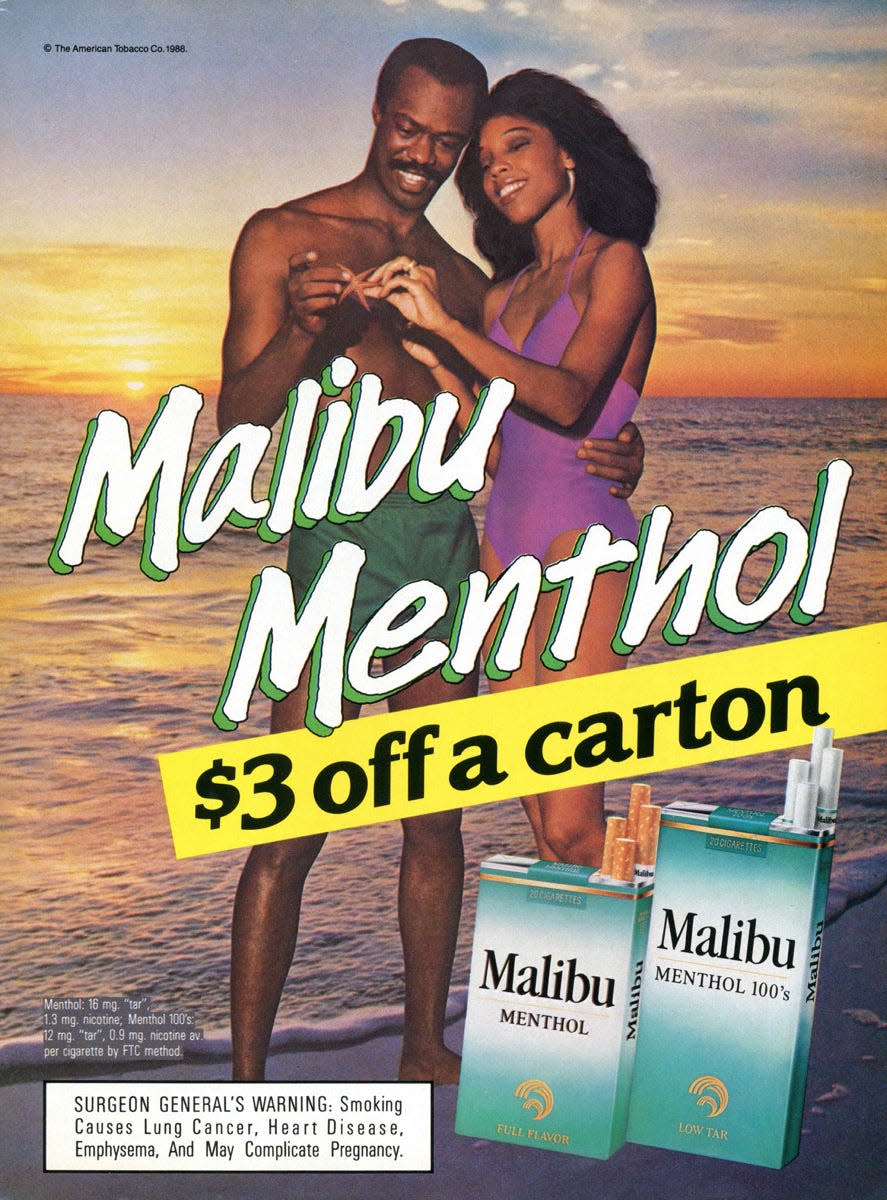
Banning menthol will save thousands of lives, Mendez said.
"This is the closest we have been," Mendez said of the proposed prohibition.
Yet the ban has seen some resistance from some tobacco companies and others.
"We strongly believe that there are more effective routes to deliver tobacco harm reduction than banning menthol in cigarettes," R.J. Reynolds said in a statement to a request for comment.
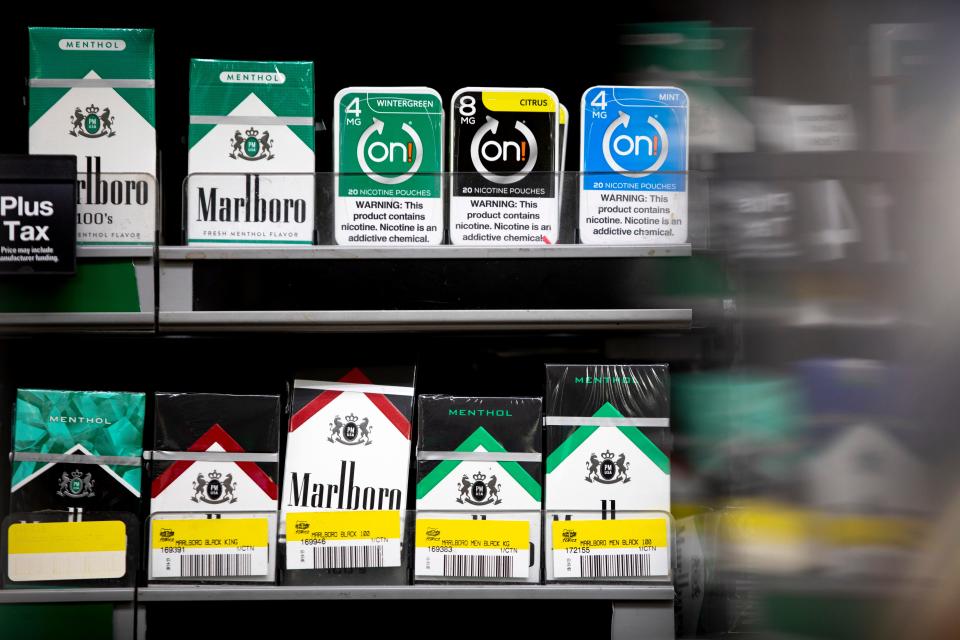
Diane Goldstein, executive director of the Law Enforcement Action Partnership, said banning menthols is another iteration of the war on drugs, which disproportionately has harmed Black people. LEAP is an organization comprised of prosecutors, judges, and law enforcement that advocates for criminal justice and drug policy reforms.
"When we ban a substance, we don't end its use," she said. "We just shift those profits from licensed, taxpaying shopkeepers to criminal organizations, leading to easier access for children, unregulated and impure products for consumers, and unnecessary diversions from violent crime for police."
In announcing the proposed ban, the FDA said it wouldn't enforce the prohibition against individual users of menthol products. Instead, an implemented ban would focus its enforcement on retailers, distributors and others.
"If these proposed rules are finalized and implemented, FDA enforcement will only address manufacturers, distributors, wholesalers, importers and retailers who manufacture, distribute, or sell such products within the U.S. that are not in compliance with applicable requirements," a statement read.
The FDA said banning menthol would help prevent children from becoming the next generation of smokers, and helps adult smokers quit.
Anti-smoking organizations said the talking points of LEAP and some other Black organizations use Black anxieties around hostile police encounters to get around regulating the market.
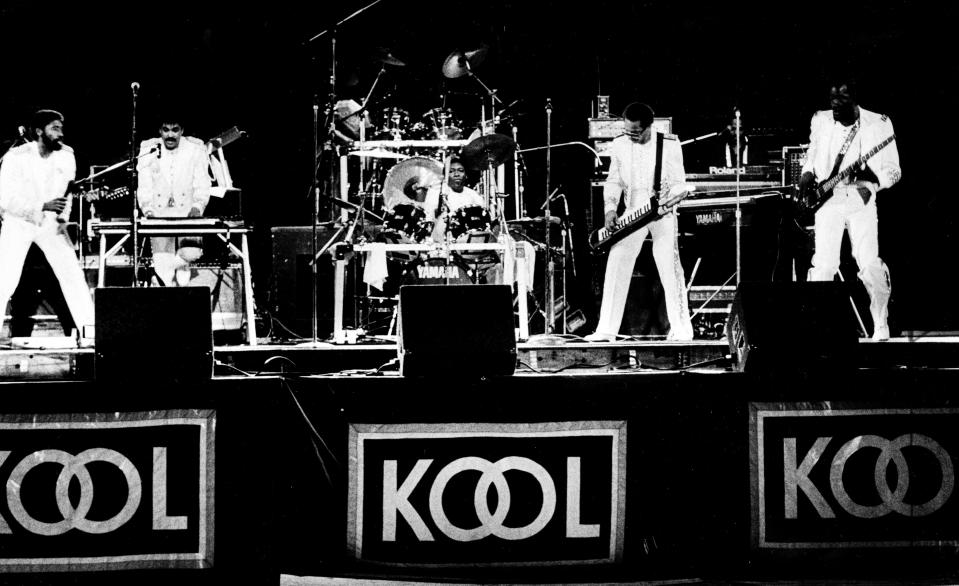
In the turbulence of the civil rights movement, tobacco companies hired Black workers when some companies wouldn't. They supported and contributed to cultural events such as the Kool Jazz Festival, a series of concerts targeting African American consumers, according to Stanford University in California.
In many advertisements, tobacco companies portrayed Black people in a positive light.
Tobacco companies also placed ads in Black-owned newspapers and magazines, providing needed advertisement revenue for the outlets.
"They started getting our figures, our actors, our sports figures, and the like," said Delmonte Jefferson, executive director of The Center for Black Health & Equity, a health organization benefiting Black people that is anti-menthol products. "They started coming into our communities. And the real thing is that they did they understood our history and culture.
"They supported everything, and they got our loyalty. And as a result, they got our death."
Menthol ads went after Black consumers for decades
"Feel the extra coolness in your throat," read one 1964 cigarette advertisement featuring a handsome Black couple with Kool menthol cigarettes lodged in their hands as they stood in an oasis.
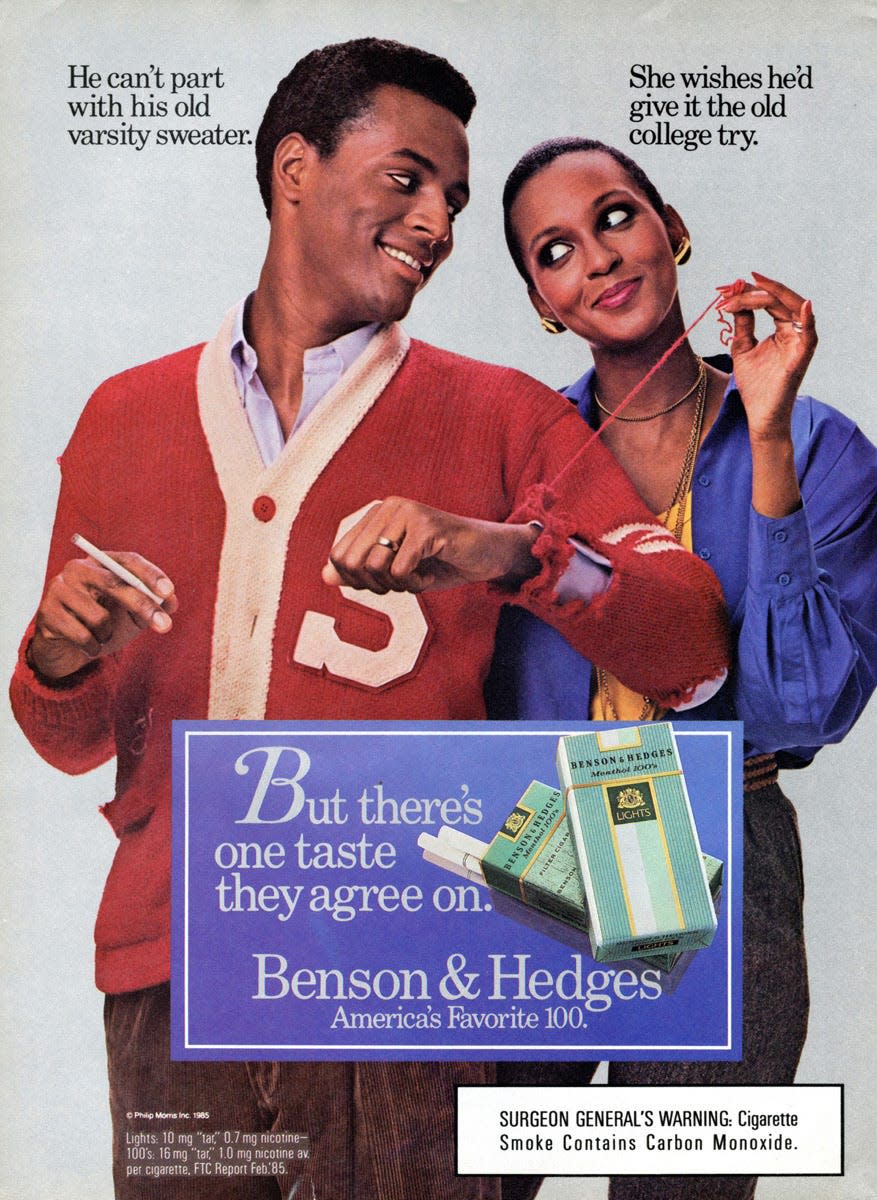
The ad was one of many that came amid the Great Migration of Black people out of the American South and into cities such as New York and Chicago, and the civil rights movement, historians say. Medical research linking cigarettes to cancer and other ailments also pushed many people to reconsider smoking, forcing tobacco companies to expand their outreach in search of new consumers.
Menthol cigarettes were created by Lloyd "Spud" Hughes in the 1920s when he mixed menthol and cigarettes. For the first few decades of the product's existence, it was marketed as a "healthier cigarette."
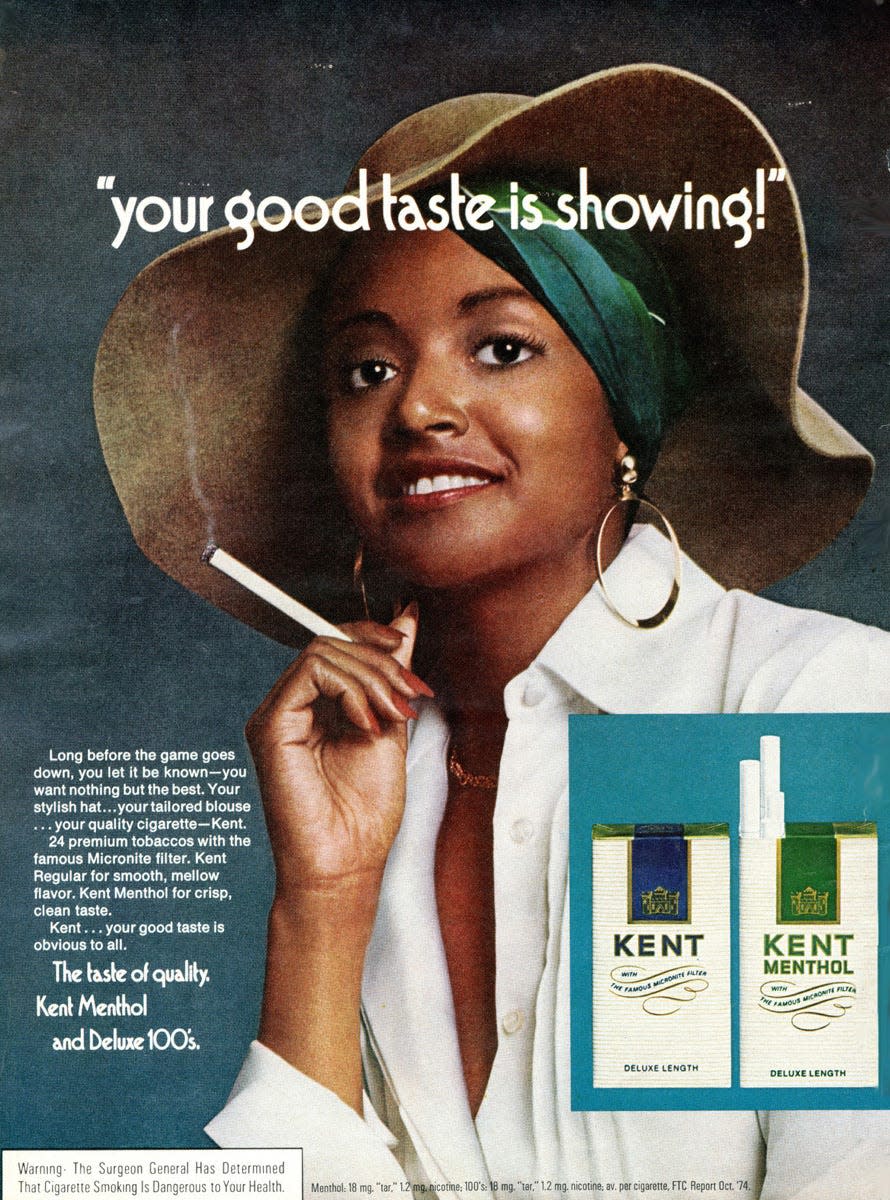
Marketers went to corner stores in Black neighborhoods to track the progress of cigarette sales. They asked workers why they had chosen to invest with a particular cigarette brand.
In St. Louis, the tobacco industry recognized that Black men didn't watch television at the same levels as their white counterparts in the 1960s, according to "Pushing Cool: Big Tobacco, Racial Marketing, and the Untold Story of the Menthol Cigarette."
Through market research, consultants recognized Black consumers would listen to trusted sources in their community – bellhops, barbers, etc. Consultants then secretly gave menthol cigarettes to those figures, who then started dispersing them in their communities, the book said.
Segregation in cities such as Detroit, New York and Philadelphia also allowed tobacco companies to place ads in Black neighborhoods without fear of white backlash, historians say.
"When you put it all together, the tobacco industry has given literally millions of dollars to black, civic, religious, political, educational organizations in our community. So, it's essentially been a full-court press," said Phillip Gardiner, co-chair of the African American Tobacco Control Leadership Council, a California-based organization that supports a national menthol ban.
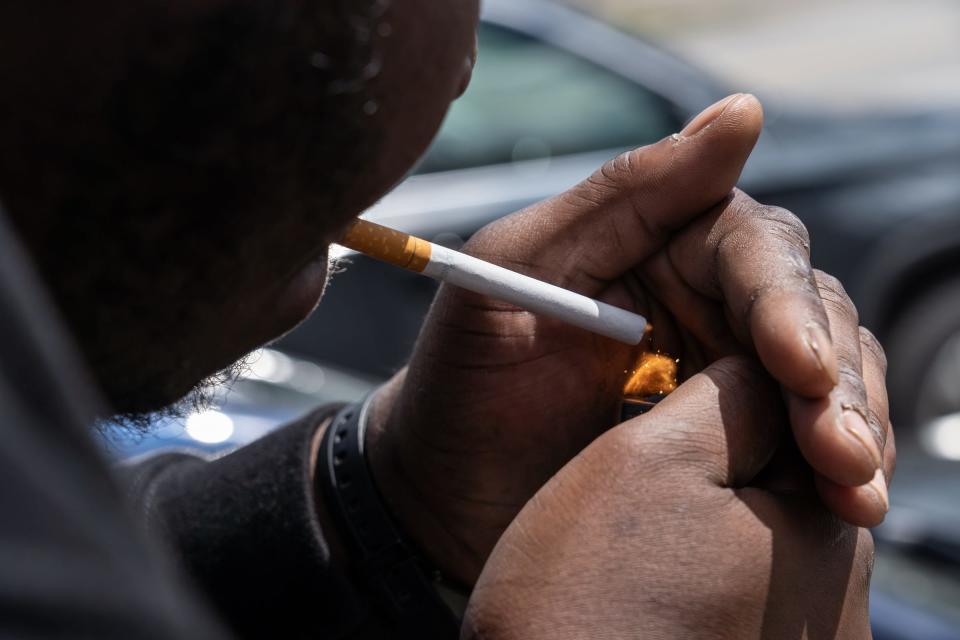
By the time Tiffany Glover, 45, started smoking, the pathway had been set. Both of her parents smoked cigarettes, though not menthol cigarettes.
Her journey began as a sophomore in college, just a few years after her mother's death from lung cancer in 1994.
Glover recalls the pull of menthols. On one end, she saw cigarette marketing in leading Black publications, plus they were a few dollars cheaper than nonmenthol cigarettes. Glover said she felt that she needed them to fit in, "wanting to be cool."
Peers at the time told her, "You need to smoke menthols. They taste better."
This confluence soon led her to smoke about a pack of Newport menthol cigarettes daily.
"It just became a full-blown addiction," said Glover, a math teacher in Natchitoches, Louisiana. "I was really starting to really desire the smoking. The peer stuff didn't matter anymore. I wanted to smoke."
'I can't breathe'
Billboards and other advertisements in Black communities were removed because of the 1998 Master Settlement Agreement, the largest civil litigation settlement in the nation's history at the time.
Seven tobacco companies agreed to pay more than $200 billion to 46 states; Washington, D.C.; and several territories. The money was set aside as compensation for taxpayer money used in tobacco-related ailments and losses to local economies, according to the agreement.

The agreement also removed tobacco advertising that included cartoons, as well as those geared to people under 18. The agreement also banned the use of cigarette advertisements on merchandise.
In the intervening years, smoking levels have decreased, but menthol still has a problematic hold on Black Americans. States such as Massachusetts and California, as well as Washington, D.C., have banned menthol cigarettes, according to the Campaign for Tobacco-Free Kids, an advocacy organization seeking to reduce tobacco use.
Cities such as Chicago and Jersey City are among the dozens that have restricted the sale of menthol products, according to the organization.
In 2009, the Obama administration banned flavored cigarettes but left off tobacco and menthol.
Groups opposed to the menthol bans have pointed to the death of Eric Garner, who was killed in a fatal confrontation with the ??New York City Police Department after being accused of selling untaxed cigarettes known as loosies. They worry more Black people will be punished for selling cigarettes under a ban.
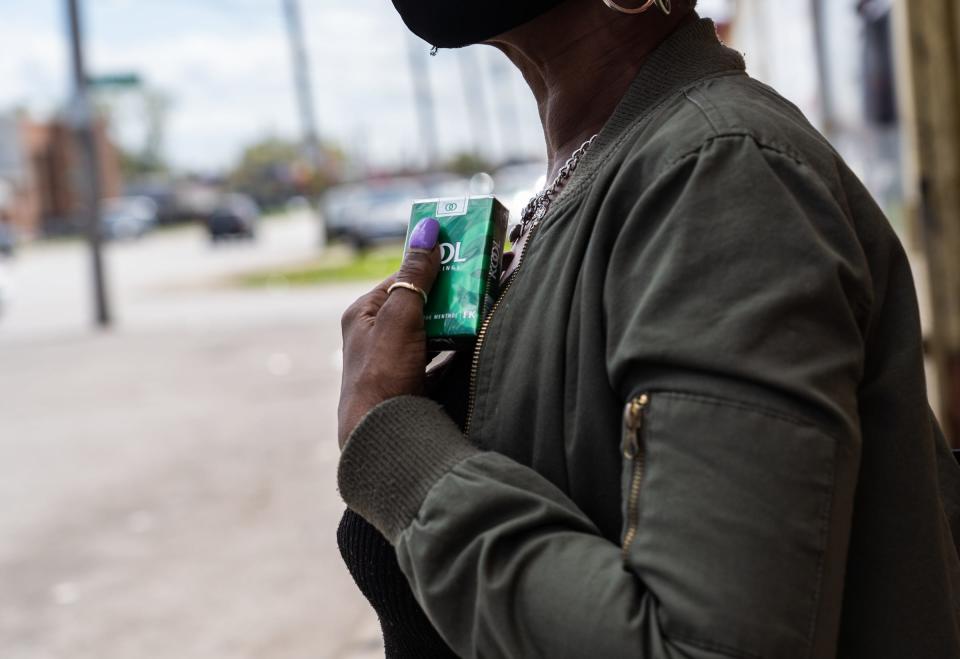
The Rev. Al Sharpton said in a letter to Susan Rice, the White House domestic policy adviser, that a menthol cigarette ban could mean that some economically disadvantaged smokers might try to create homemade menthol cigarettes. Sharpton's organization has taken money from the tobacco industry.
Wailoo, the Princeton professor, said Garner's plea of "I can't breathe" in some ways mirrors the experience of thousands of Black people who have died because of tobacco usage.
"It's been a slow and deliberate process of constraining people's lungs, constraining their health, and it leads exactly to the same place: I can't breathe. The only difference is that, in the case of George Floyd, in the case of Eric Garner, we can see this happens in a couple of minutes," he said. "And we can see who the culprit is that is driving the death of those young men. In the case of the menthol cigarette, it happens over decades."
For Glover, the Louisiana teacher, her reckoning around cigarettes came around a decade ago. Her eldest daughter, then 16, was the same age as when Glover lost her mother to lung cancer. If she didn't quit, Glover thought, she might not be there for heras she entered adulthood.
"If you don't quit smoking, you're not going to be able to get the chance to see what it's like," she thought to herself.
At that thought, she decided to put down the habit, removing ashtrays from her house and using nicotine patches and other methods.
Loved ones and friends coached her on, even waiting with her in restaurant parking lots as she used chewing gum to fight the urge to have a cigarette after a meal.
After she quit, her eldest daughter expressed relief that she had stopped – a surprise to Glover because she thought her daughter had no opinion on the matter.
As for the menthol cigarette ban, she said, the more lives saved, the better.
Tiffany Cusaac-Smith covers race and history for USA TODAY. Click here for her latest stories. Follow her on Twitter @T_Cusaac.
This article originally appeared on USA TODAY: Why decades of racially targeted menthol cigarette ads matters today
Solve the daily Crossword

